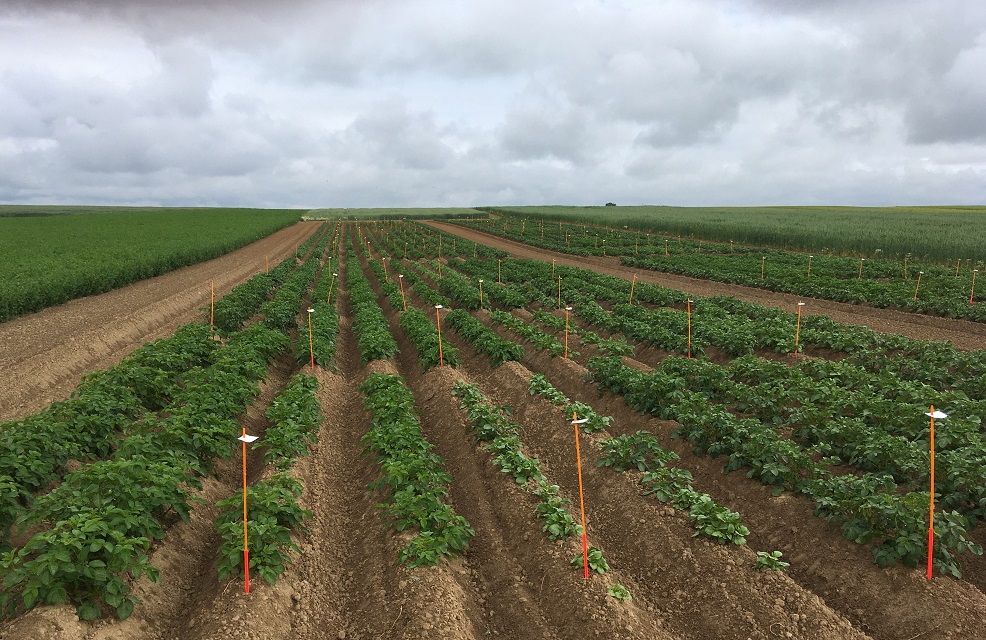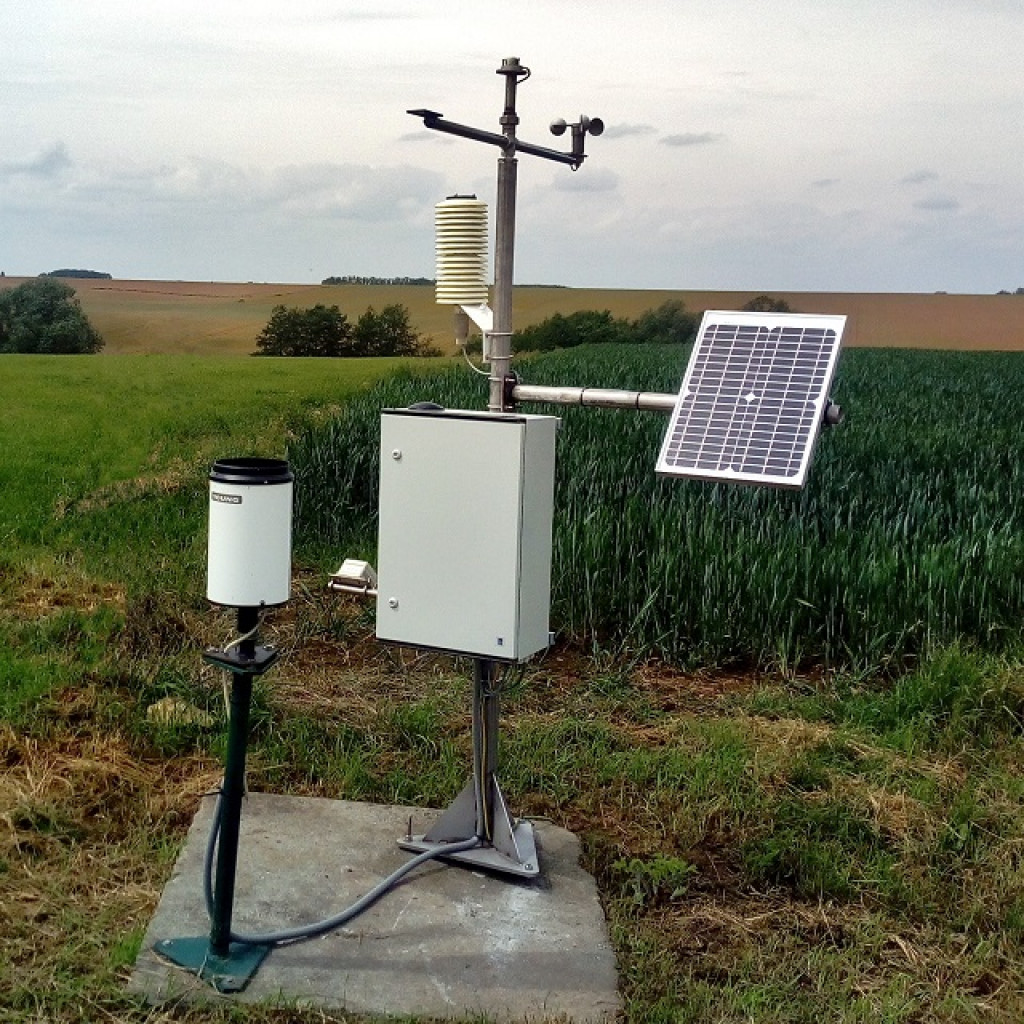With the evolution of the market, climate change and the changing requirements of the industry, the demand for more robust varieties is growing. One of the main components is a strong resistance to late blight, which is by far the main potato disease against which many fungicide treatments have to be applied. In addition, climate change will undoubtedly impose a need for varieties that are more tolerant to water stress and periods of high temperature rises. CRA-W's mission is now to be able to offer the Belgian market new varieties that meet these requirements, while maintaining good quality and high yields.
To achieve these objectives, the selection programme focuses on two areas:
Resistance to late blight:
Our strategy is based on the "pyramidal" combination of resistance genes against several strains of Phytophthora infestans, as well as on the combination of different polygenic resistance mechanisms. To achieve this, the identification of resistance genes present in the panel of genitors used in our selection programme is an essential step. In addition, work will be carried out to identify genitors with polygenic resistance components. This will enable us to cross parents with different resistance genes, in the hope of combining them into a single hybrid.
Monitoring the evolution of late blight strains and the bypassing of resistance genes will also provide information that will enable us to be more precise in our choice of genitors and subsequently hybrids. This last point is covered by the CRA-W late blight laboratory every year.
Initial objectives have been achieved thanks to the creation of three varieties with a certain level of resistance to late blight: 'Louisa' in 2017, 'Floribel' in 2022 and 'Sarpira' in 2023. The creation of new varieties that are more resistant to late blight replaces the traditional varieties that are highly susceptible, such as 'Bintje', 'Fontane', 'Challenger', etc.
Resistance to water stress:
By studying the physiological characteristics of plants under water stress using different phenotyping tools, we can define effective and precise selection methods for this type of stress. These tools help to accelerate the plant improvement process.
An experiment carried out in the CRA-W greenhouses aimed to determine the responses of a series of potato cultivars to drought stress. This experiment showed genetic differences in stress response, particularly in agronomic traits (such as tuber weight and number) and physiological parameters. Reduced stomatal conductance is one of the first responses to water stress that can be measured with a "porometer". In fact, reduced stomatal conductance is a direct response of stomatal closure when facing this type of stress. This phenomenon enables the plant to maintain leaf turgidity. The experiment showed that varieties that close their stomata faster have a higher water stress tolerance index.










